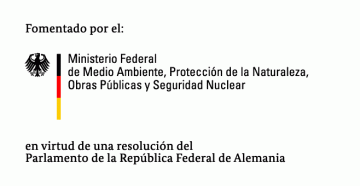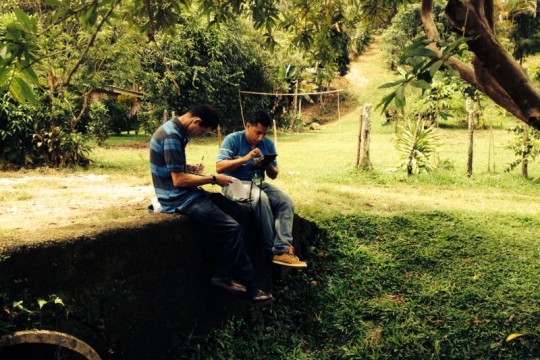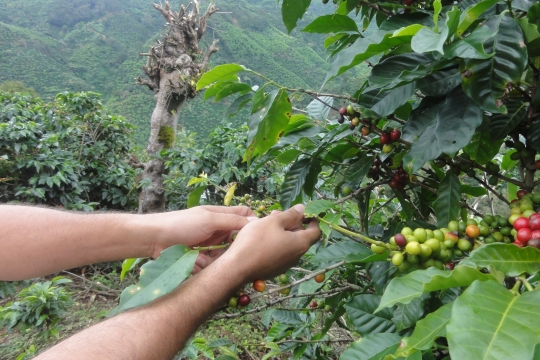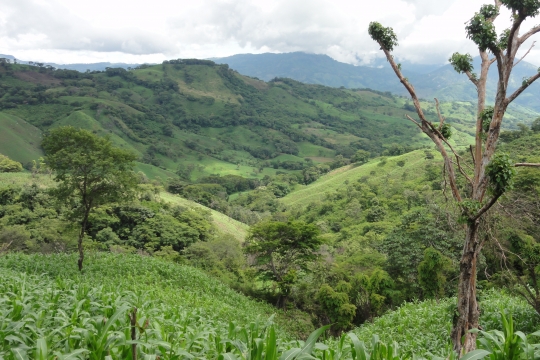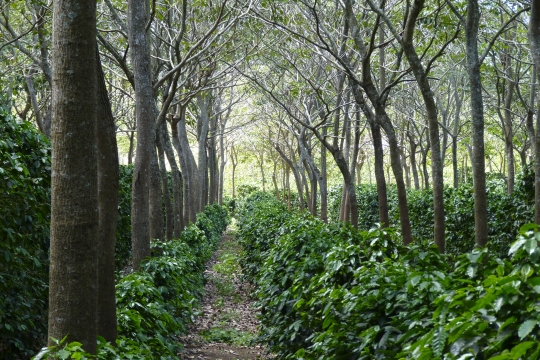CASCADE project promotes adaptation to climate change in vulnerable communities of smallholder farmers in Costa Rica, Honduras and Guatemala, through Ecosystem-based Adaptation strategies (EbA).
In Central America, smallholder farmers represent the significant majority of the farming population and accounting for an important portion of regional agricultural production. They are particularly vulnerable to the expected impacts of climate change due to their high dependence of natural resources and their low capacity to cope with shocks,
This issue becomes especially relevant because of its potential effect in food security and in poverty in the region.
In this context, Ecosystem-based Adaptation (EbA), which lie in the use of biodiversity and ecosystem services as part of an overall strategy to help people adapt to the adverse effects of climate change, in an effective, long-term sustainable way, affordable by farmers.
The Research Program in Economics and Environment for Development (EEfD-CATIE), the Climate and Watershed Program at CATIE and Conservation International (CI) have come together in the project called “Ecosystem-based Adaptation for Smallholder Subsistence and Coffee Farming Communities in Central America” (The CASCADE Project), with the aim of help vulnerable smallholders adapt to climate change by identifying and testing EbA strategies and building local capacity to support the implementation of these strategies in Costa Rica, Honduras and Guatemala. Also, the French Agricultural Research Centre for International Development (CIRAD) is a strategic partner in the project as well as other key organizations working on EbAs in the region. The project is founded by the Federal Ministry for the Environment, Nature Conservation, Building and Nuclear Safety (BMUB), based on a decision of the Federal Parliament of Germany.
CASCADE seeks to locate most climate vulnerable areas of Central America; document strategies useful in dealing with climatic variation; identify and assess effectiveness of household and community-level EbA interventions; evaluate institutional support for EbA; build capacity to promote and support implementation of EbAs through agricultural extension systems; and disseminate project results at multiple levels to achieve impacts at both the policy and technical implementation scale.
By the third year of work, the project have made a considerable advance in understanding how future changes in climate will affect vulnerable communities in terms of water availability, changes in crop suitability or expected impacts of extreme events. Also, CASCADE have collected many data about household experiences, farmer’s perceptions of changes, EbA practices’ effectiveness and ecosystem services under different management systems. The experiences and preliminary results of the CASCADE Project have been shared in several forums at regional and international level, all of them with great scientific or politic influence, and they are currently working on data analysis, mapping institutional network and planning the capacity building.
Links
The household survey experience:
|
For more information contact CASCADE Project Co-leaders: |
|
|
Francisco Alpízar Director EfD-CA at CATIE |
Celia Harvey Vice President for Global Change and Ecosystem Services at CI |
|
Or CASCADE Coordinators: |
|
|
Bárbara Viguera Project Manager by CATIE |
Ruth Martínez Project Manager by CI |
Files and links



